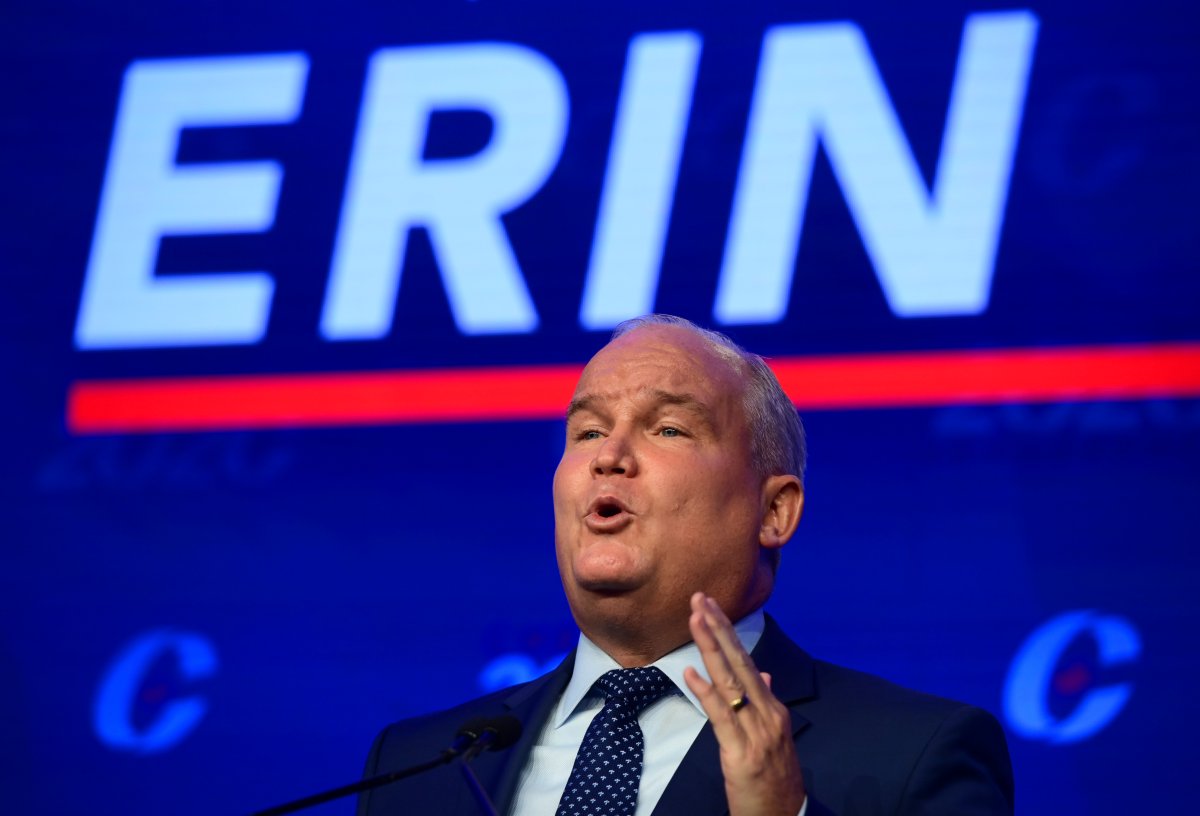It’s not entirely clear what motivated Conservative leader Erin O’Toole to raise the topic of mandatory voting. It’s not something he’s discussed in the past, and he doesn’t seem completely enthusiastic about the idea.

Perhaps, then, we can give him the benefit of the doubt that this was just about throwing out some ideas in a conversation about electoral reform. But if this was meant as some trial balloon, let’s pop this one quickly: Canada does not need and should not want mandatory voting.
O’Toole made the comments a couple of weeks ago during an online event with a B.C. business group. The Conservative leader was asked for his thoughts on electoral reform, and more specifically, proportional representation.
O’Toole’s response was that he was not in favour of changing the way in which we elect federal politicians, but did say that he was “thinking about and talking about” the compulsory voting system that exists in Australia.
When further pressed this week on what prompted those remarks, O’Toole insisted that he’s “just in listening mode” on this idea about which the Conservatives “haven’t announced any policy whatsoever.”
- ‘Alarming trend’ of more international students claiming asylum: minister
- TD Bank moves to seize home of Russian-Canadian jailed for smuggling tech to Kremlin
- Why B.C. election could serve as a ‘trial run’ for next federal campaign
- Justin Trudeau headed to UN Summit of the Future amid international instability
So basically it’s still a bit of a mystery where this came from. O’Toole raised this issue without any prompting, but seemed to be distancing himself from the idea soon afterwards. Hopefully he’ll abandon it altogether.

Get daily National news
He’s not the first to raise this issue in recent years, though. Back in 2014, for example, Liberal MPs debated the idea at their summer retreat. The committee set up in 2016 to explore electoral reform (a promise ultimately abandoned by the Liberals) was tasked specifically with studying the issue of mandatory voting.
It is true that Australia has much higher voter turnout, perhaps not surprising when not voting can result in a fine. Australian elections average about 95 per cent turnout, whereas Canada’s last federal election had about 67 per cent turnout (2015 was at approximately 68 per cent).
One can at least argue that other possible electoral reforms (such as proportional representation or ranked ballots) have a more defined purpose (making our system “fairer,” for example). It’s unclear what the problem is that mandatory voting is supposed to solve.
Proponents would argue that it’s “low” voter turnout that’s the problem. For one, it’s not clear what the threshold for “low voter turnout” is or why 67 per cent is a number to be worried about (it should be noted that turnout in the last two elections was up from 61 per cent in 2011 and 59 per cent in 2008).
Even if we’d prefer a higher number, it’s worthwhile knowing what’s keeping people from voting in the first place. Voter turnout is a symptom of other problems — access to voting, voter cynicism, etc. — but it’s not at all clear that it is a problem in and of itself.
In fact, if we simply force people to vote and then pat ourselves on the back for the resulting turnout number, we may be glossing over some of those deeper problems. Mandatory voting certainly doesn’t cure voter cynicism, and could theoretically make that problem worse. You can’t force people to care about something, and that includes elections.
Ultimately, citizens should have a right in a free society to say “I don’t care” or “none of the above.” Mandatory voting only works if there are penalties for non-compliance, and we should reject the premise that apathy and discontent are crimes. Furthermore, enforcing such a regime would be rather expensive and intrusive.
Given that turnout in federal elections has been trending upward, this “problem” (if we are to call it that) may be correcting itself, anyway. That could perhaps be accelerated through voter information and election awareness campaigns as well as more options and flexibility when it comes to how and where one casts a ballot.
Voter turnout isn’t our biggest problem and mandatory voting certainly isn’t the answer.
Rob Breakenridge is host of “Afternoons with Rob Breakenridge” on Global News Radio 770 Calgary and a commentator for Global News.









Comments